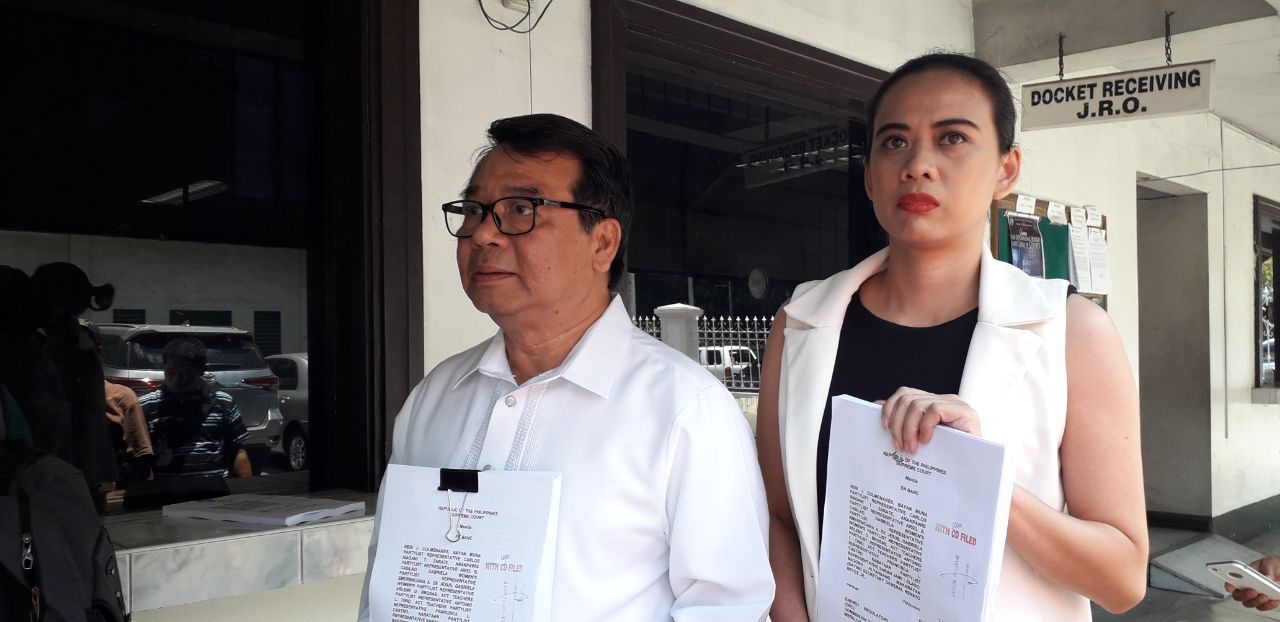SUMMARY
This is AI generated summarization, which may have errors. For context, always refer to the full article.

MANILA, Philippines – The Makabayan bloc on Tuesday, April 30, asked the Supreme Court (SC) to stop the Manila Electric Company (Meralco) from charging bill deposits from their consumers.
Makabayan’s petition, filed by senatorial candidate Neri Colmenares, argued that the several Energy Regulatory Commission (ERC) issuances that authorize bill deposits are not sanctioned by Republic Act No. 9136 or the EPIRA law.
The petition asked the SC to declare as illegal and void ERC’s Magna Carta for Residential Electricity Consumers and other resolutions that defined bill deposits and allowed Meralco to charge them from consumers.
Makabayan wants the Court to “permanently prohibit” Meralco from charging bill deposits. It also wants the interest earnings from the bill deposit returned to consumers.
Bill deposits
The ERC Magna Carta issued in November 2010, defined bill deposit as the “deposit required from customers by distribution utilities of new and/or additional service equivalent to the estimated billing for one month to guarantee payment of bills.”
Meralco explains it like this: the deposit is equivalent to the estimated billing for one month, serving as a security for unpaid bills.
In 2015, consumers protested the updated bill deposits scheme of Meralco.
“If the actual bill is 10% greater than the Bill Deposit, then there is an automatic increase in the Bill Deposit that has to be paid by the customer,” Makabayan said in its petition.
For example, a consumer who paid a bill deposit of P1,500 when he had his connection installed would have to pay an additional P500 for his bill deposit when his average monthly consumption goes up to P2,000.
While bill deposits can be refunded, a delay in payment would default the deposit.
Makabayan said that its own audit of Meralco’s finances show that the electric company “is currently holding more than P29 billion in customer bill deposits.”
“These funds are not held in escrow in another bank, but are commingled with the general funds of Meralco. Hence these funds earn interest at commercial rates. These can be invested in various financial instruments that generate interest earnings,” said Makabayan.
Colmenares added: “Ito lang ‘yung kinaiba eh. Sa water wala akong alam na bill deposit eh, bakit sa telecommunication ba may deposit ba tayo na kapag hindi ka nakabayad sa Smart, Globe, etc, may babawiin ba silang deposit? Wala akong alam na ganoon.”
(They’re the only ones doing this. In water [utilitiies] I don’t know of any bill deposit. In telecommunications, do you have a deposit that Smart, Globe, etc can get from if you don’t pay your bills? I don’t know of anything like that.)
Colmenares also pointed out that Meralco is pushing consumers to a corner because they don’t have an alternative choice for an electricity provider.
Not in EPIRA
Makabayan pointed out that under Section 23 of the EPIRA Law, distribution utilities such as Meralco were authorized to impose and collect the following: distribution wheeling charges, connection fees, and retail rate.
Retail rate, Makabayan said, is “the the total price paid by end-users consisting of the charges for generation, transmission and related ancillary services, distribution, supply, and other related charges for electric service.”
“Bill deposit, defined in the Magna Carta and elsewhere, as a mere guarantee for the payment of bills, obviously does not form part of retail rate,” said Makabayan.
It added: “It is not a charge for any electric service, but rather an amount posted by consumers for future or anticipated electric service that is not paid. By its nature as mere guarantee, it does not form part of retail rate, and as such, is not an allowed exaction under the EPIRA.”
This is Makabayan’s latest petition filed before the SC. Earlier this month, opposition lawmakers from the Makabayan bloc asked the High Court to stop the Duterte government’s loan agreement with China for the Chico River pump irrigation project. – Rappler.com
Add a comment
How does this make you feel?
There are no comments yet. Add your comment to start the conversation.